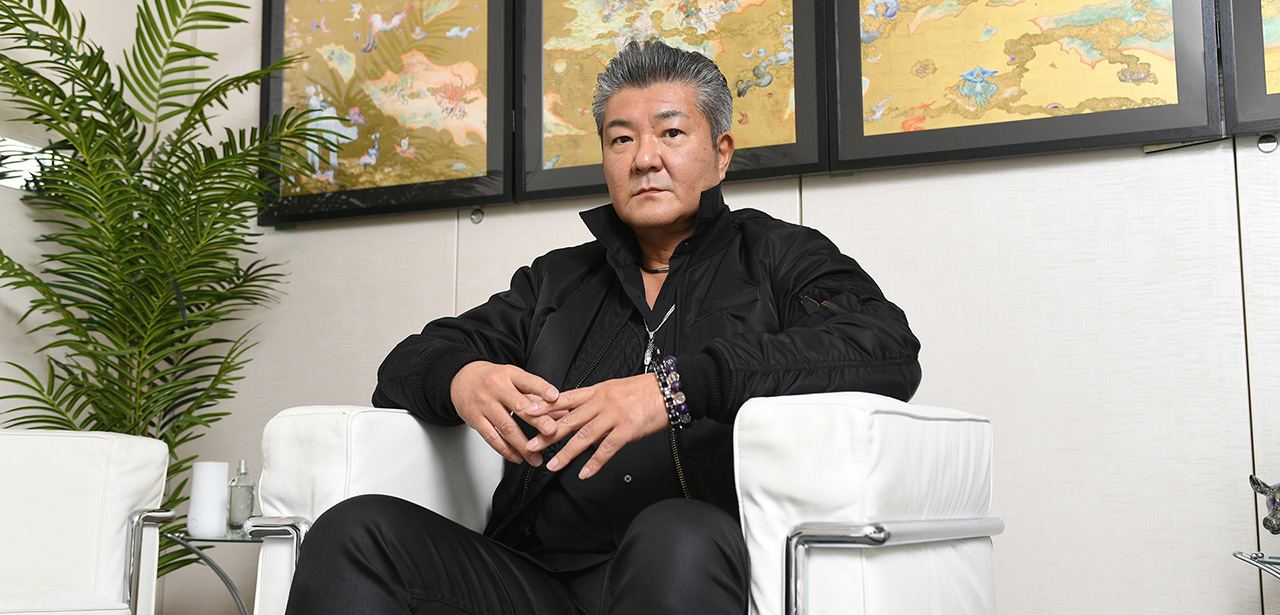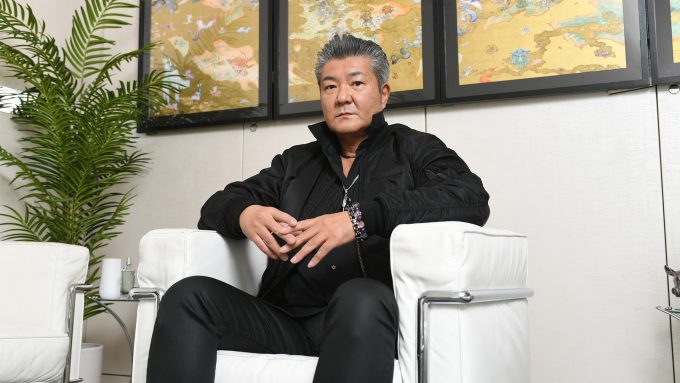WE GREW VANA’DIEL is a series of interviews with those who were involved in the development of FINAL FANTASY XI (FFXI), as well as guests from other companies. In this installment, we interviewed Koichi Ishii, the original Director of FFXI who breathed life into the fantasy world of Vana’diel. In this second part, Mr. Ishii shared how he ended up working on FFXI.
* To differentiate between the FINAL FANTASY series and its first title of the same name, in this article, we will be referring to the first title in the series as “FFI.”

CEO of Grezzo Co, Ltd. In the early days of Square, he planned FFI and was in charge of game design until the third game in the series. After that, he worked on the direction of the Mana series and other projects before returning to the FF series to work on FFXI. In addition to creating the foundation for the world of Vana'diel, he was also the director leading up to the Rise of the Zilart expansion.
The possibility of creating that imaginary world
After working on the first three titles of the FF series, you then shifted your attention to the SaGa series and Mana series.
- Ishii
Prior to joining the FFXI project, I intended to make a sequel to Legend of Mana. The “Free Scenario System” in Romancing SaGa was originally my idea, and I put my own spin on it to make Trials of Mana.
After that, I felt I was onto something when I created Legend of Mana, which enabled players to create their own world to play with. The game successfully established a new kind of fantasy realm that hadn’t existed before and was well-received, so I was confident we could make a sequel. That being the case, I was going to work with the Mana team to create either a sequel to Legend of Mana or the latest numbered title in the Mana series. That's when you were approached by Mr. Sakaguchi.
- Ishii
That’s right. He was fanatical about online games and announced that we’d be making one ourselves. I wasn't interested in them at all, but since FFXI was to be an ambitious undertaking for the FF series, Mr. Sakaguchi* wanted me and Mr. Tanaka* in the lineup. Mr. Tanaka gave his blessing early on, but I kept rejecting his offer.
* Hironobu Sakaguchi, one of the founders of the FF series.
* Hiromichi Tanaka, original Producer for FFXI. Was it because you wanted to develop the Mana series further?
- Ishii
Yes. There was previously a time when I temporarily stepped away from the Mana team. The experience made me painfully aware that stepping away had been the wrong move, and I was keen on sticking with the Mana series from there on out. I didn’t want to lose the Mana team by leaving again, so I must’ve turned down the offer to join FFXI at least three times. (laughs wryly)
But nevertheless, Mr. Sakaguchi insisted on the Ishii/Tanaka pair.
- Ishii
As a last resort, he urged our CEO at the time, Mr. Takeichi*, to help persuade me. So he spoke with me and said, “Ishii, would you hear Mr. Sakaguchi out just once?” and since I was fond of Mr. Takeichi, I just couldn’t refuse. (laughs wryly) He set up a video conference with the Hawaii studio and I reluctantly spoke with Mr. Sakaguchi, but in the end, that discussion didn’t lead to a final decision either.
* Tomoyuki Takeichi, former CEO of Square (now Square Enix). Which means you still refused to back down. (laughs)
- Ishii
Of course. (laughs) But Mr. Sakaguchi insisted, “I’ll prepare what you need to play EverQuest*, so just give it a try. If you still refuse after trying it, I won’t bring it up again,” so I had no choice but to play. As I was playing, he suddenly showed up on his character and said, “Here, you can have these,” and handed me all sorts of equipment, and I thought to myself, “Hey, that’s surprisingly thoughtful of him.” (laughs)
* EverQuest is an MMORPG released in North America in 1999.
I’d later learn those items were easily obtained from mid-game content, but since they were unobtainable in the early game, I was really grateful for them at the time. I felt a little happy at Mr. Sakaguchi’s thoughtfulness in coming all the way to give me equipment, and I was also surprised that an online RPG had made me feel that way. All in all, you could say I fell for his scheme hook, line, and sinker. (laughs) Mr. Tanaka also mentioned how he received equipment from Mr. Sakaguchi, so that must’ve been his go-to tactic when preaching MMOs. (laughs)
- Ishii
I was aware of MMORPGs and had even tried Ultima Online* to see what they were like. However, with Ultima Online’s 2D top-down perspective, I didn’t feel like I was really “there” in the world. EverQuest’s overworld, on the other hand, had countless players I didn’t know roaming around and allowed me to gaze around at the 3D in-game environment. It was able to convey a “space” and “world,” and as I thought about how I could even gaze up at the sky in the game’s virtual world, I came to the realization that I could finally create the world of FF I’d always wanted to make.
* Ultima Online is an MMORPG released in 1997 widely considered to be a pioneer of the genre.
Another thing was how Legend of Mana had a theme of allowing players to find their own ways to play, which I felt could be explored further in FFXI. I also felt that FFXI would utilize many of the systems and know-how that went into Legend of Mana, such as data linking. In retrospect, perhaps it was inevitable that developing FFXI was the next step after Legend of Mana. It sounds like you felt the potential of MMORPGs for yourself.
- Ishii
I did. I’d wanted to include a day/night cycle since FFI and to give a backstory for the moon. I also wanted to give players a sense of regional characteristics and monster ecology. I think I had a strong desire to realize the idea of living in a fantasy world. Although I express all these elements through game data, many of them had to be given up in previous games due to various restrictions.
However, I sensed that my ideas might be possible in the new realm of MMORPGs. So from there on out, I played EverQuest while noting what I’d do differently or what I wished was in the game. I also thought of how the game might be improved by placing objects that would draw players’ emotions and interest. And so you applied those ideas in FFXI.
- Ishii
In FFXI, I prepared a lot of data that could generate coincidental occurrences. I thought it’d be interesting to have “easter egg” elements that could only be seen when certain data happened to align.
Even now, witnessing a rainbow over La Theine Plateau or the aurora borealis on Qufim Island fills me with a surge of excitement that makes me want to tell my friends.
- Ishii
Today’s MMORPGs aim for convenience in every aspect, but the fantasy realm I envisioned may have been more like those of the past, where people thought, “That was rough, but it was fun!” The harshness of the world was precisely why we sometimes worked with others and shared our joy with those around us. It filled me with joy to have been able to create and witness a world where people can honestly tell each other “Congratulations!” when someone levels up.
While I’m fully aware of how that sort of playstyle isn’t suitable in the current era, every area I visited in my adventures back then have stayed with me through vivid memories, which is something that’s difficult to experience in modern MMORPGs.
- Ishii
I accepted the role of FFXI Director because I longed to express the realistic fantasy realm I had imagined. Through our conversation so far, I’ve realized that I wanted to create that “playful environment” from my grade school days. The kind of activity-filled environment that begins from the question, “What should we do after school today?” was realized in FFXI, where you could share your joy with people you’d never met before in the real world. I was very happy to have established such a place.
Something that stands out to me about FFXI’s setting is how they haven’t advanced beyond steam-powered technology. I heard you were the one who decided that.
- Ishii
I had very strict rules for our staff members regarding that. That said, after the world of FFXI had been established to some extent, I felt it was acceptable to introduce technological advancements that would follow steam power, as long as there was a good reason, so I told them it was okay to do so after players had an understanding of what the world of FFXI is like and what its residents value most.
Once someone has a grasp of the setting, I’m sure they’d think, “Hey, we could probably use crystals to make a magical steam engine!” or “Couldn’t we make a power generator by combining certain elemental magic?” When it comes to engines, it’s very important what kind of setting they were created in; you can’t just take real-world technology and have it exist in fantasy for no reason. That would not be considered worldbuilding. After all, technological advancements in a fantasy realm wouldn’t necessarily mirror that of the real world.
- Ishii
The size and shape of a chair, for example, should reflect the racial or physical characteristics of the person who uses it; taking those kinds of attributes into account makes the world easier to imagine. It visually corroborates with the lore of certain races residing in the area, and when you have those kinds of details sprinkled about as if they belong there, it makes the world more immersive. I checked those sorts of things in detail, so looking back on it now, I must’ve been a troublesome director. (laughs wryly)
But it’s thanks to that level of commitment that we have the truly wonderful details we see in the world of FFXI.
- Ishii
I was certainly very particular about them. FFXI has many elements that aren’t visible on the surface; in other words, they may not be implemented in the game but still exist in the lore. In any case, a large number of staff members poured a lot of their passion into the worldbuilding. It required that much more time and effort to unify our direction and awareness, but I believe all of that was reflected in the Vana’diel that exists today.
* Part 3 will be available on October 19, 2022.




